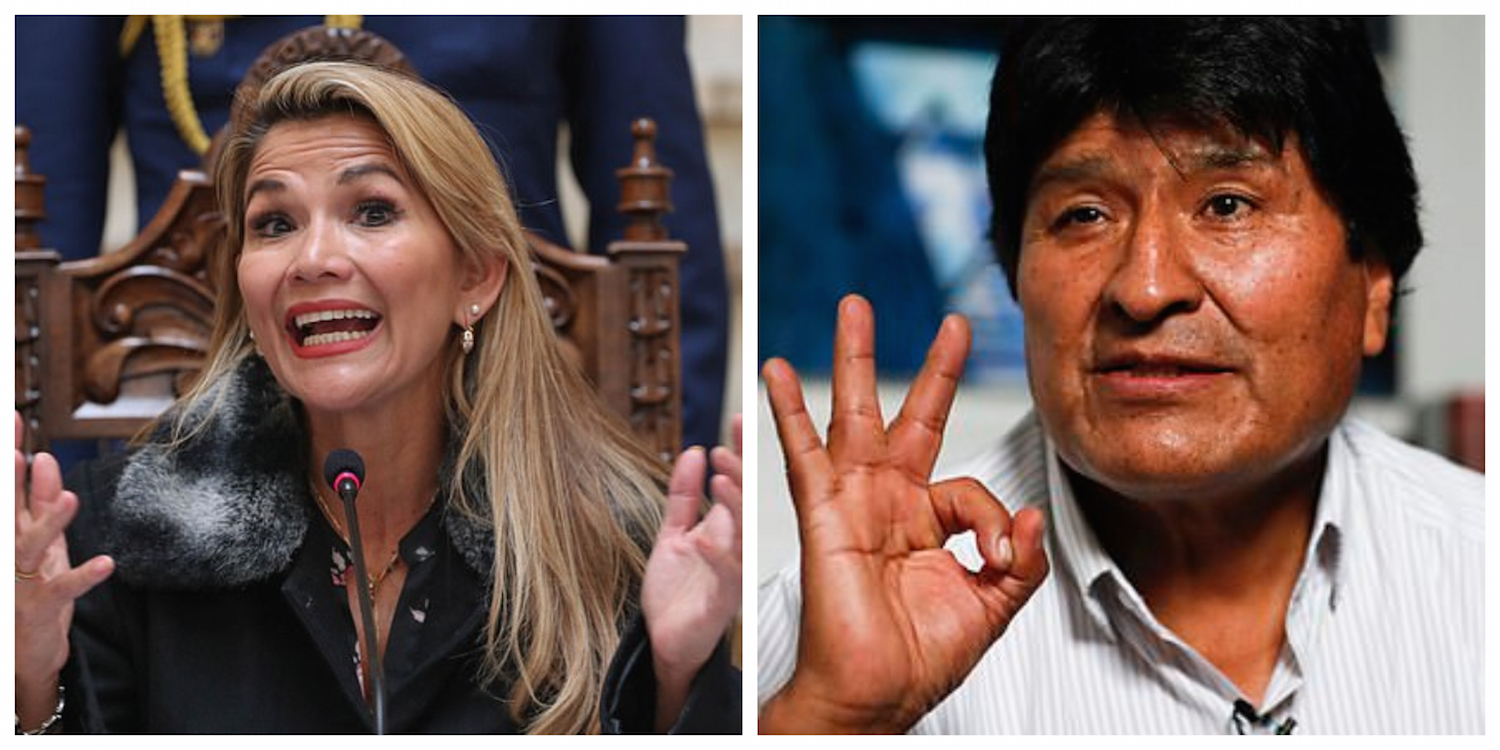
Bolivia’s Interim President, Jeanine Añez, tests positive for COVID-19 ahead of general elections
Añez is the second South American leader to test positive for coronavirus.
On Thursday night, the interim president of Bolivia, Jeanine Añez Chavez, released a video on Twitter where she confirmed that she tested positive for the novel coronavirus.
“I will be in quarantine for 14 days until I have a new test to see how I’m doing. I feel well, I feel strong, I am going to keep working remotely from my isolation,” she told her constituents on Twitter.
This news comes at a tough time for Bolivians as they are seeing a surge in COVID-19 cases.
The country of nealy 11.7 million people has over 44,100 cases and over 1,600 deaths.
According to the Johns Hopkins Coronavirus Resource Center this puts the South American nation at number nine globally in terms of deaths per 100,000 residents.
If the interim president were to suffer any complications, there is no clear successor as she came into power without a vice president.
Añez is the second leader in South America and third in the Latin American region to contract the virus.
On Tuesday, Brazil’s president Jair Bolsonaro tested positive for the coronavirus. This came after months of dismissing the virus and calling it a “little flu.” Brazil has the second highest amount of cases and death toll in the world, only behind the United States.
Honduras’s president, Juan Orlando Hernandez, was hospitalized in mid June for 16 days after he confirmed he had the virus.
In the week prior to it being known that Bolivia's leader had the virus, many lower ranking officials and two members of her cabinet also tested positive for it. They were: her minister of health, Eidy Roca, and her minister of the presidency, Jerko Núñez, who was hospitalized because of increased health complications.
Añez was already a loathed figure in the Plurinational State of Bolivia before the country became one of the worst-affected nations in the region because of COVID-19.
Añez proclaimed that she was president on Nov. 12 of last year. Her presidency has been marked with public backlash for exiling the country’s first indigenous leader, Evo Morales, even though the majority of people are of indegenous origin. She has also tried to undo many of the leftist policies put in by the previous administration.
Prior to her taking office, Morales tried to run for an unprecedented fourth term, but after disputed election results and pressure from a military coup to step down, he left the country.
Morales claimed the United States backed the military coup and he kept professing this after the Trump White House released a statement praising them.
“The United States applauds the Bolivian people for demanding freedom and the Bolivian military for abiding by its oath to protect not just a single person, but Bolivia’s constitution. These events send a strong signal to the illegitimate regimes in Venezuela and Nicaragua that democracy and the will of the people will always prevail,” the White House wrote.
RELATED CONTENT
Morales has been a political refugee first in Mexico and then Argentina. He is still the head of the Socialist Movement Party (MAS), but Añez’s administration has barred him from running in the 2020 elections as she passed an amendment that limits presidents to only serve two terms.
Añez’s two week absence while the public suffers the effects of the public health crisis could further tank her chances in the general elections that are two months away.
The Bolivian general elections were supposed to be held on May 3, but were postponed to September 6 because of the pandemic.
The 2020 MAS presidential candidate, Luis Arce, is the favorite to win the general election. He served as Minister of Economics and Public Finance under Morales and the former leader still sees over his campaign while he is in Argentina.
Because of his continued involvement in Bolivian electoral politics, on July 6 the Bolivian Attorney General charged Morales with terrorism and financing terrorism from his exile.
Seven former officials from his administration are also being targeted, but are in asylum in the Mexican embassy in La Paz.
MAS still holds a commanding majority in the Bolivian Chamber of Deputies and Senate.
An early poll released by The Latin American Strategic Centre for Geopolitics (CELAG) shows Arce leading with 41.9% and his closest rival, former president Carlos Mesa, 15.1 points behind.
Self-proclaimed president Añez places third, 28.5% behind Arce.











LEAVE A COMMENT: